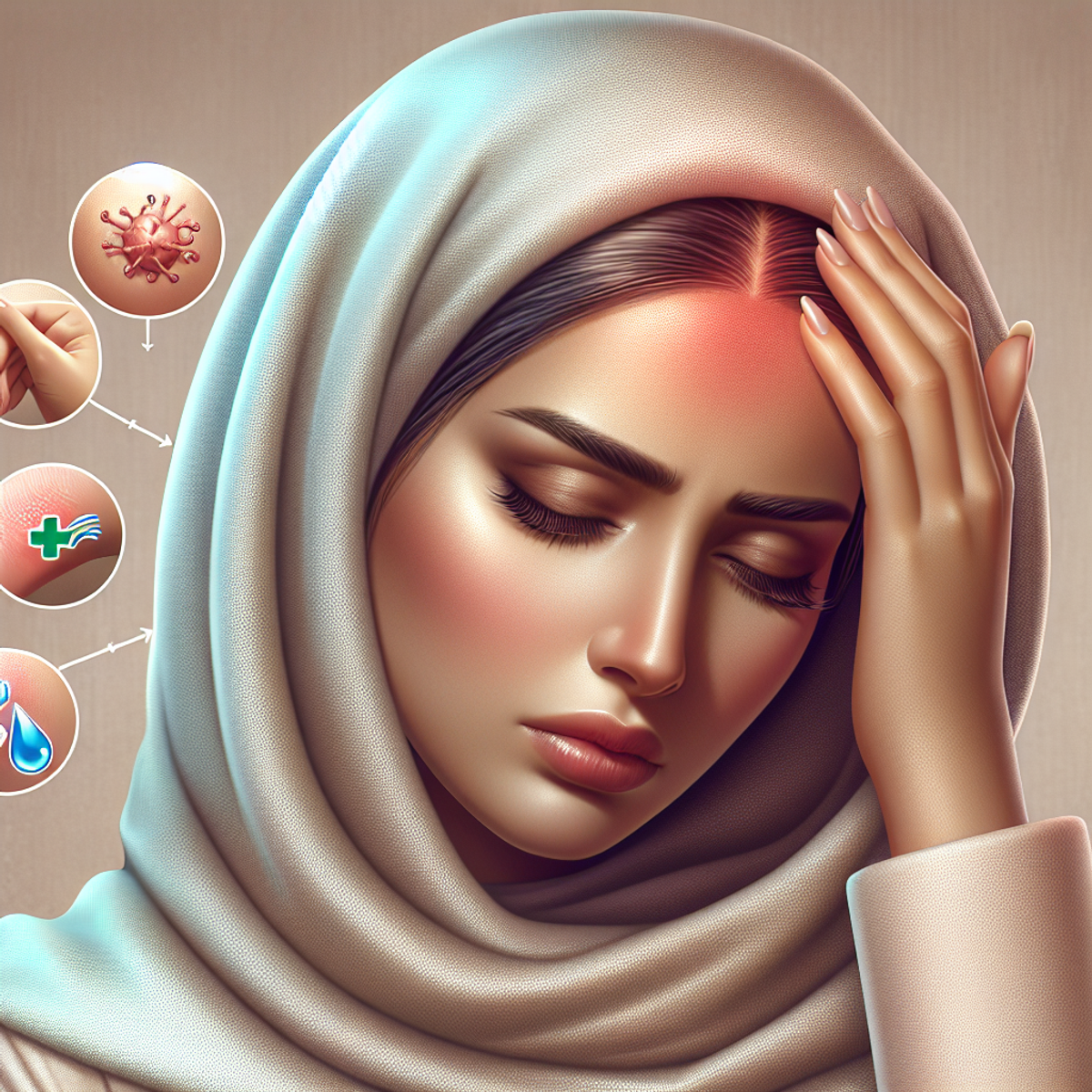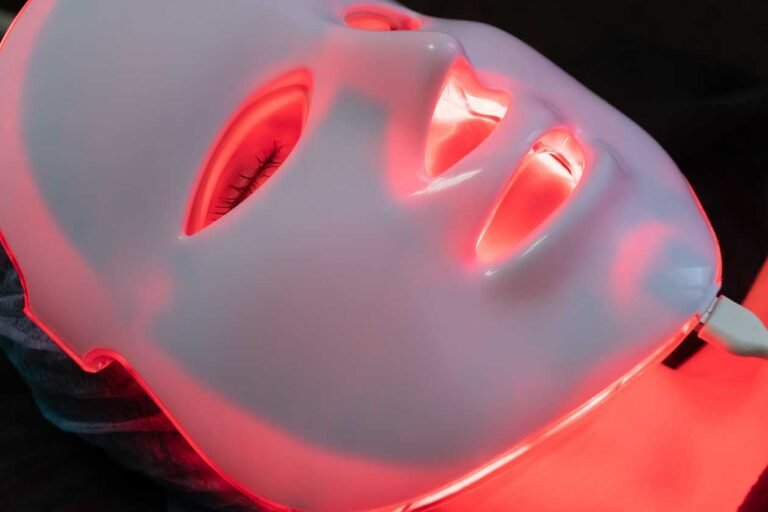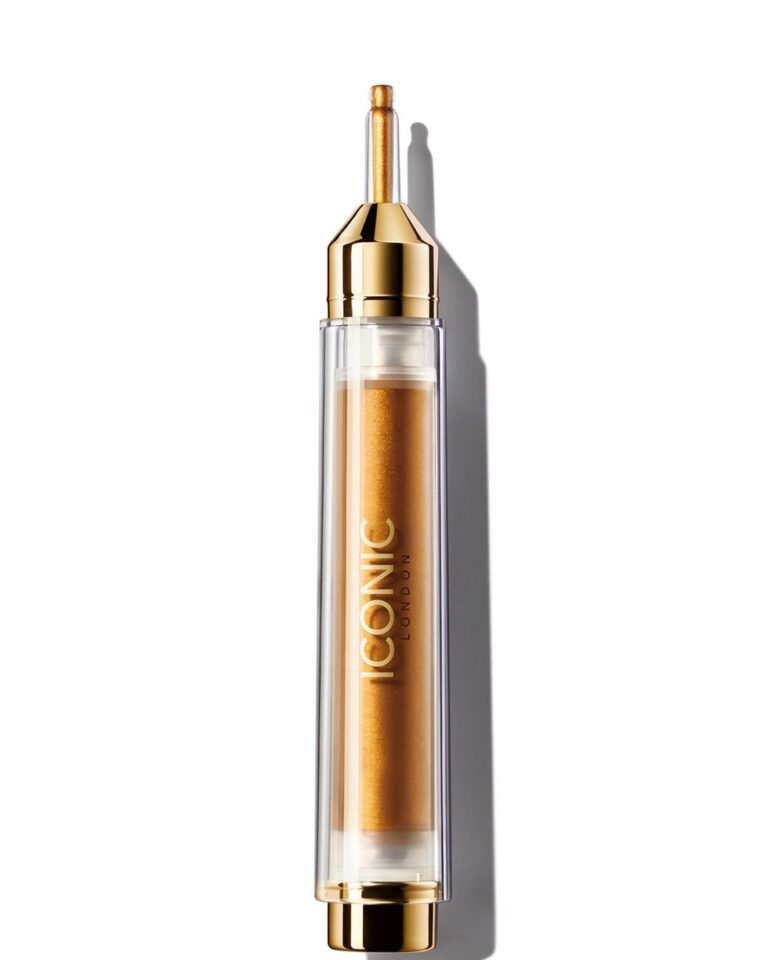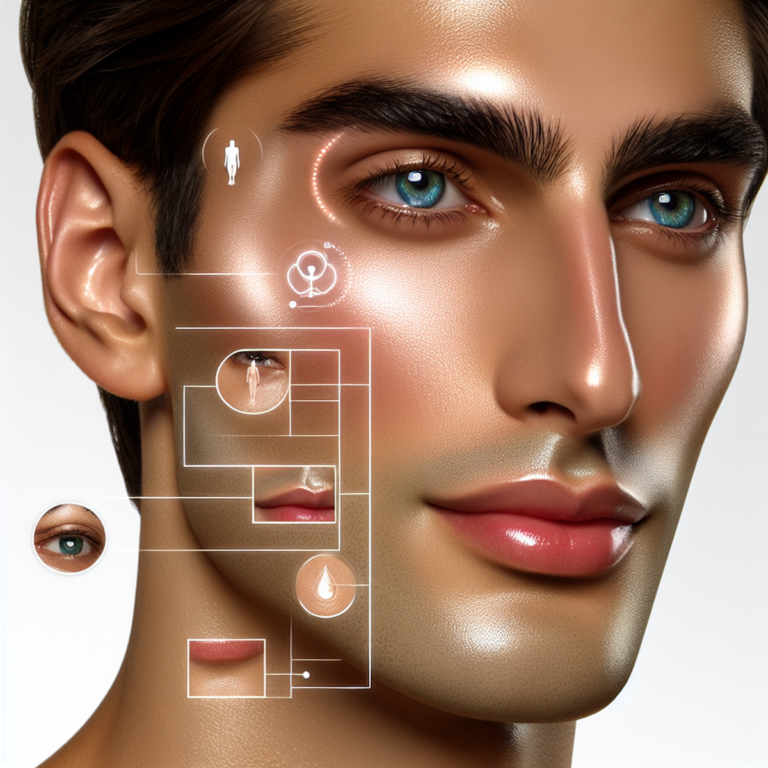Dealing with a Sensitive Scalp? Derms Explain the Causes and Treatments

Introduction
A sensitive scalp can be uncomfortable and frustrating for many people. It’s when the scalp gets easily irritated, causing symptoms like itching, burning, flaking, redness, tightness, soreness, or tingling. Knowing why it happens and how to treat it is important for relieving discomfort and improving scalp health.
In this article, we’ll cover:
- The common causes of a sensitive scalp
- The connection between specific scalp conditions and sensitivity
- Other factors that can contribute to sensitivity
- How to recognize the symptoms
- Effective treatment options for finding relief
- When it’s necessary to seek professional advice
Key Takeaway: By understanding what causes a sensitive scalp and finding the right treatments, you can actively manage your condition.
Now let’s explore the main reasons behind a sensitive scalp.
1. Common Causes of a Sensitive Scalp
A sensitive scalp can be triggered by various factors that can lead to discomfort and irritation. Understanding the common causes of a sensitive scalp is crucial in managing and preventing flare-ups of sensitivity symptoms. Here are the key factors that can contribute to scalp sensitivity:
Stress
Stress is known to have a significant impact on overall health, and the scalp is no exception. High stress levels can lead to increased sensitivity in the scalp, causing symptoms such as itching, burning, or tightness. Finding effective stress management techniques, such as meditation, exercise, or therapy, can help alleviate scalp sensitivity.
Sunburn
Excessive sun exposure can lead to sunburn on the scalp, resulting in redness, soreness, and peeling skin. Protecting the scalp from harmful UV rays by wearing hats or using sunscreen specifically designed for the scalp can help prevent sunburn-induced sensitivity.
Pre-Existing Scalp Conditions
Conditions such as dandruff, seborrheic dermatitis (commonly known as dandruff in Black people), psoriasis, folliculitis, or atopic dermatitis (eczema) can make the scalp more prone to sensitivity reactions. Managing these underlying conditions with targeted treatments and gentle care is essential in reducing overall scalp sensitivity.
Allergic Reactions
Allergies to certain hair products or ingredients can cause allergic contact dermatitis on the scalp, leading to itching, redness, and irritation. Identifying and avoiding allergens by opting for hypoallergenic haircare products can help prevent allergic reactions and minimize scalp sensitivity.
Hormonal Changes
Fluctuations in hormone levels, especially during pregnancy or menopause, can impact the scalp’s condition and trigger sensitivity symptoms. Adapting haircare routines to accommodate hormonal changes and using soothing products can help manage scalp sensitivity during these transitions.
Understanding how each of these causes relates to scalp sensitivity is vital in developing a proactive approach to maintaining a healthy and comfortable scalp environment. Additionally, it’s important to be aware that some skincare practices can also affect scalp health indirectly, so taking a holistic approach to self-care is recommended.
2. The Link Between Specific Scalp Conditions and Sensitivity
A sensitive scalp can often be linked to specific scalp conditions such as dandruff, seborrheic dermatitis, psoriasis, folliculitis, and atopic dermatitis (eczema). Understanding the relationship between these conditions and scalp sensitivity is crucial in finding effective treatment approaches that address both the condition and the sensitivity.
1. Dandruff
Dandruff is a common scalp condition characterized by flaking and itching. It occurs when the scalp’s natural balance is disrupted, leading to an overgrowth of yeast called Malassezia. This overgrowth triggers an inflammatory response, causing scalp sensitivity. To manage both dandruff and scalp sensitivity, consider using anti-dandruff shampoos containing ingredients like ketoconazole or zinc pyrithione.
2. Seborrheic Dermatitis
Seborrheic dermatitis is a chronic inflammatory skin condition that primarily affects areas rich in sebaceous glands, including the scalp. It presents as red, scaly patches and can cause intense itching and burning sensations. The exact cause remains unknown, but factors such as yeast overgrowth, hormonal changes, stress, and immune system dysfunction may contribute to its development. Effective treatment options for seborrheic dermatitis include medicated shampoos containing coal tar or salicylic acid along with topical antifungal creams or steroids.
3. Psoriasis
Psoriasis is a chronic autoimmune disease that affects the skin cells’ life cycle, causing them to multiply rapidly. This rapid cell turnover leads to the formation of thick, silvery scales on the scalp accompanied by itching and inflammation. Scalp psoriasis can be managed with various treatments like coal tar shampoos, corticosteroids, vitamin D analogs, and biologic medications prescribed by a healthcare professional.
4. Folliculitis
Folliculitis is an infection or inflammation of hair follicles, often caused by bacteria or fungi. It can result in red, swollen bumps on the scalp and cause discomfort and sensitivity. Treatment options for folliculitis include topical or oral antibiotics, antifungal medications, and good scalp hygiene practices.
5. Atopic Dermatitis (Eczema)
Atopic dermatitis, commonly known as eczema, is a chronic inflammatory skin condition characterized by dry, itchy patches. When it affects the scalp, it can cause intense itching and sensitivity. Managing eczema-related scalp sensitivity involves keeping the scalp moisturized with gentle, fragrance-free products and using topical corticosteroids or calcineurin inhibitors as prescribed by a healthcare professional.
It’s important to note that while these common scalp conditions can contribute to scalp sensitivity, individuals may experience different levels of sensitivity based on their unique circumstances. Therefore, it’s crucial to consult with a dermatologist or trichologist to receive an accurate diagnosis and personalized treatment plan that addresses both the underlying condition and the associated scalp sensitivity.
By understanding the link between specific scalp conditions and sensitive reactions, individuals can take proactive steps to manage both aspects effectively and promote overall scalp health.
3. Other Contributing Factors That You Should Know
A sensitive scalp can be influenced by various factors beyond specific scalp conditions. These factors can impact the overall health of your scalp and increase your susceptibility to sensitivity issues. Here are some other contributing factors that you should know:
1. Tight Hairstyles
Wearing tight hairstyles such as ponytails, braids, or buns can exert tension on the scalp, leading to discomfort and sensitivity. The constant pulling and friction can irritate the scalp, causing redness, soreness, and even hair breakage. To maintain a healthy scalp environment, opt for looser hairstyles that minimize tension on the hair follicles. Consider wearing your hair down or trying gentle updos instead.
2. Sleeping Positions
Believe it or not, the way you sleep can also impact your scalp health. Sleeping with your head pressed against a pillow for extended periods can create pressure points and restrict blood flow to the scalp. This can result in scalp discomfort and increased sensitivity. To mitigate this issue, try sleeping on a silk or satin pillowcase which reduces friction and allows your scalp to breathe.
3. Autoimmune Diseases
Certain autoimmune diseases like lupus or alopecia areata can cause inflammation in the body, including the scalp. This inflammation can trigger sensitivity symptoms such as itching, redness, and flaking. If you have an autoimmune condition, it’s important to manage it effectively with the guidance of a healthcare professional to minimize its impact on your scalp health.
4. Infections and Infestations
Infections such as fungal infections or infestations like head lice can also contribute to a sensitive scalp. These conditions can cause intense itching, redness, and irritation. Treating the underlying infection or infestation is crucial in alleviating sensitivity symptoms and restoring scalp health.
5. Stress
While it may not directly cause a sensitive scalp, chronic stress has been linked to various skin conditions, including those affecting the scalp. Stress can disrupt the balance of hormones and weaken the immune system, making the scalp more susceptible to sensitivity issues. Therefore, managing stress levels through practices such as meditation, exercise, or therapy can indirectly help improve scalp health.
To maintain a healthy environment for your scalp and reduce sensitivity issues, here are some practical tips:
- Opt for looser hairstyles that minimize tension on the scalp.
- Avoid using excessive heat or chemical treatments on your hair, as they can damage the scalp and exacerbate sensitivity.
- Practice good hygiene by regularly washing your hair and scalp with a gentle, sulfate-free shampoo.
- Be mindful of the products you use on your hair and scalp, opting for those without added preservatives, fragrance, or sulfates.
- Protect your scalp from excessive sun exposure by wearing a hat or applying sunscreen to exposed areas.
By taking these proactive steps and being aware of these contributing factors, you can create a healthier scalp environment and reduce the likelihood of experiencing sensitivity issues. Remember,
Recognizing the Symptoms of a Sensitive Scalp
A sensitive scalp can show various symptoms, which may indicate an underlying issue that needs attention. It’s important to identify these signs to determine if you have scalp sensitivity. Some common symptoms of a sensitive scalp include:
- Itching: Constant itching on the scalp, which may cause discomfort and interfere with your daily activities.
- Burning: A burning or stinging sensation on the scalp, often with redness or irritation.
- Flaking: The presence of flaky or dry skin on the scalp, which may be a sign of conditions like dandruff or seborrheic dermatitis.
- Redness: Visible redness or inflammation on the scalp, indicating an immune response or irritation.
- Tightness: A feeling of tightness or tension on the scalp, often linked to dryness or dehydration of the skin.
- Soreness: The scalp may feel tender or sore when touched, showing heightened sensitivity.
By being aware of these symptoms, you can better understand the condition of your scalp and take appropriate steps to address any discomfort or issues that arise.
4. Seeking Relief: Effective Treatment Options for Scalp Sensitivity
Dealing with a sensitive scalp can be frustrating and uncomfortable. However, there are several treatment options available that can help alleviate symptoms and improve scalp health. Here are some effective strategies to seek relief:
1. Proper Haircare Routine
A good haircare routine is essential for managing scalp sensitivity. Use gentle products specifically formulated for sensitive scalps. Look for shampoos and conditioners that are free from potential irritants such as preservatives, fragrance, and sulfates. These ingredients can further irritate the scalp and worsen sensitivity symptoms.
2. Avoid Potential Irritants
Pay attention to the ingredients in your haircare products and avoid those that may trigger sensitivity reactions. Opt for fragrance-free or hypoallergenic options whenever possible. Additionally, check for the presence of common irritants like preservatives (such as parabens) and sulfates (such as sodium lauryl sulfate). These ingredients can strip the scalp of its natural oils and disrupt its delicate balance.
3. Beneficial Ingredients
Certain ingredients can be beneficial for different scalp conditions and sensitivity issues. For example, if you’re dealing with flaking or excess sebum on the scalp, shampoos containing ketoconazole or zinc pyrithione are effective in treating these concerns. These ingredients help control the overgrowth of yeast and fungi that contribute to dandruff.
4. Medical Treatments
In more severe or persistent cases of scalp sensitivity, it may be necessary to seek professional guidance. Dermatologists can prescribe prescription products that target specific scalp conditions such as psoriasis or folliculitis. These treatments may include topical corticosteroids, immunomodulators, or antifungal medications to reduce inflammation, regulate cell turnover, or combat fungal infections.
It’s important to note that everyone’s scalp is unique, so what works for one person may not work for another. It may take some trial and error to find the right combination of products and treatments that provide relief for your specific scalp sensitivity.
Remember, seeking professional advice is crucial if your symptoms persist or interfere with your daily life. A dermatologist or trichologist can conduct a thorough evaluation and recommend targeted interventions to address your scalp health concerns effectively.
By taking proactive steps in caring for your sensitive scalp and exploring treatment options, you can manage scalp sensitivity and improve overall scalp health. With the right approach, you can find relief from the discomfort and enjoy a healthier, more comfortable scalp.
5. When to Seek Professional Advice for Scalp Sensitivity Issues
Dealing with a sensitive scalp can be challenging, especially when symptoms persist despite trying various home remedies and over-the-counter treatments. Knowing when to seek professional help is crucial for effectively managing scalp sensitivity issues. Here are some guidelines on when it’s necessary to consult a dermatologist or trichologist for scalp sensitivity issues:
- Persistent Symptoms: If you have been experiencing persistent scalp sensitivity that does not improve with gentle haircare practices and basic treatments, it’s important to seek the expertise of a medical professional. Persistent symptoms can indicate an underlying scalp condition that requires targeted interventions.
- Interference with Daily Life: When scalp sensitivity symptoms significantly interfere with your daily activities, such as causing discomfort, affecting sleep, or impacting your overall well-being, consulting a healthcare professional becomes essential. They can conduct a thorough evaluation to identify the root cause of the sensitivity and recommend appropriate treatments.
Healthcare professionals play a crucial role in addressing scalp sensitivity issues:
- Further Evaluation: Dermatologists and trichologists can conduct in-depth evaluations to determine the specific factors contributing to your scalp sensitivity. This may involve examining your scalp health history, conducting tests if necessary, and identifying any underlying scalp conditions.
- Targeted Interventions: Based on their assessment, medical professionals can recommend targeted interventions tailored to your scalp health concerns. This may include prescribing medicated shampoos, topical treatments, or oral medications for severe scalp conditions that contribute to sensitivity.
Remember that seeking professional advice for persistent scalp sensitivity is not a sign of defeat but rather a proactive step towards finding effective solutions for your scalp health. By collaborating with experienced dermatologists or trichologists, you can gain valuable insights and personalized care that address the root causes of your sensitive scalp issues.
Conclusion
Caring for a sensitive scalp requires a proactive and holistic approach to effectively manage its condition. By understanding the common causes of sensitivity and the available treatment options, you can take steps to alleviate discomfort and improve the overall health of your scalp. Remember that seeking professional advice is crucial for persistent or severe scalp sensitivity issues. With the right approach and guidance from healthcare professionals, you can effectively manage a sensitive scalp and maintain its health.
By addressing both internal and external factors that contribute to scalp sensitivity, you can create a healthy environment for your hair and scalp. Embracing gentle haircare routines, avoiding potential irritants, and seeking targeted interventions when necessary are key components of managing scalp sensitivity. Remember that everyone’s scalp is unique, so finding the right approach may involve some trial and error. Stay proactive, be patient, and prioritize your scalp’s health for long-term comfort and well-being.










